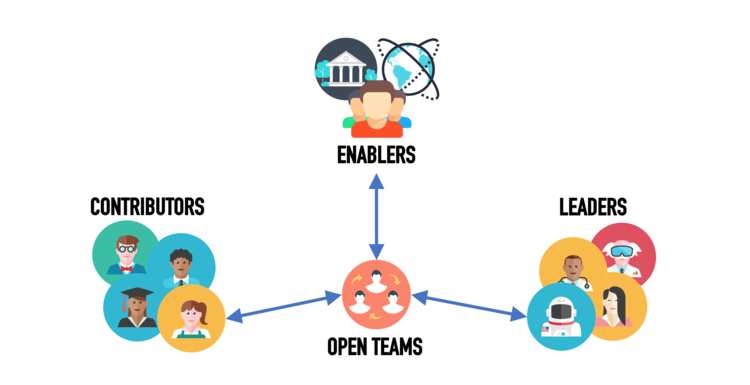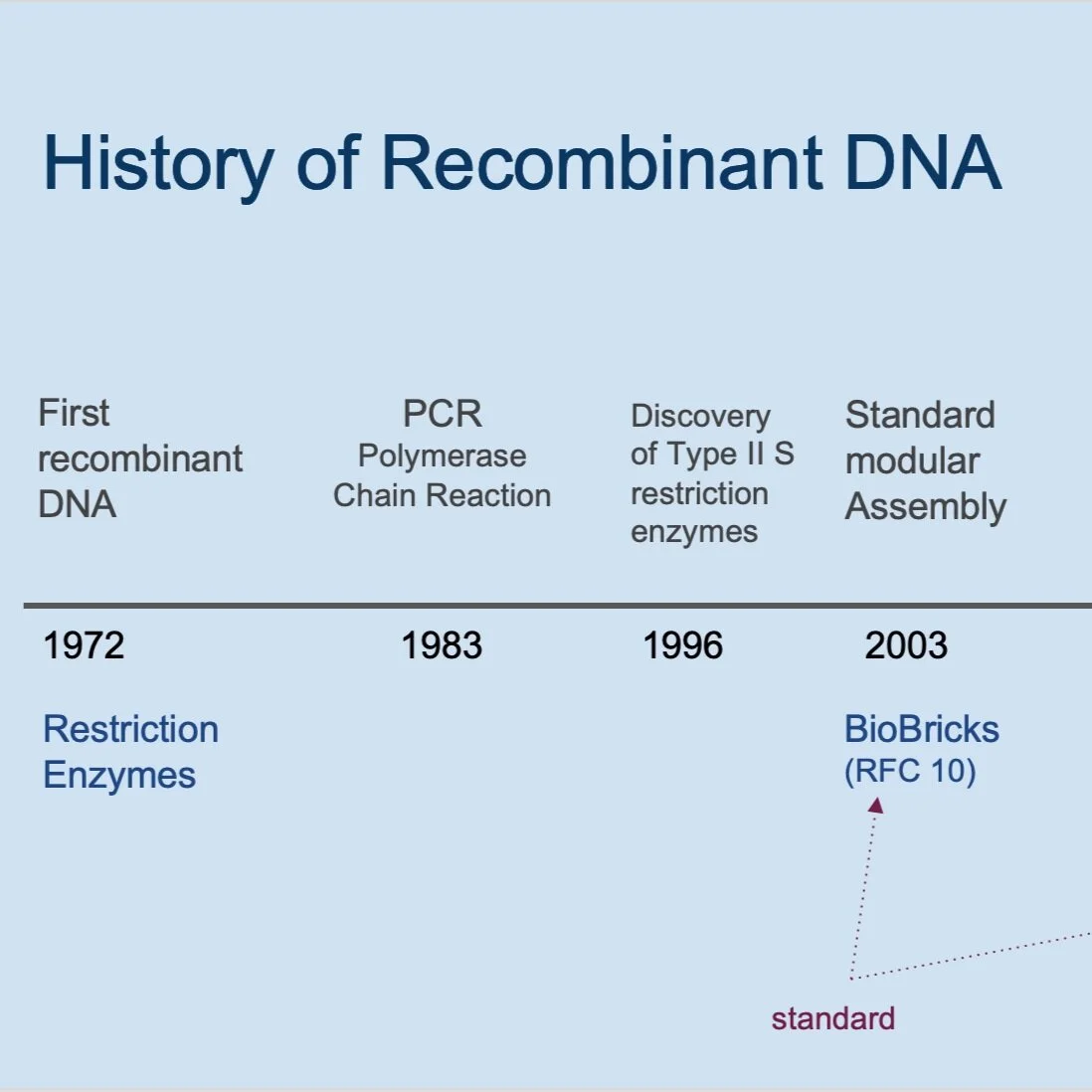Just One Giant Lab (JOGL): Fostering Open Collaboration Between iGEM Teams
by Thomas Landrain and Marc Santolini, Co-founders of JOGL
Thomas and Marc also gave a session on this topic at iGEM’s 2020 Opening Weekend Festival
(YouTube)(Bilibili)
The iGEM community has more capacity than most existing actors to imagine, develop, and implement open source and low cost biotech solutions to help fight the COVID-19 crisis and climate change. For that reason, the iGEM Foundation has decided to partner with Just One Giant Lab (JOGL), a non-profit organization headquartered in Paris, that is developing an open science and innovation platform. In this post, we would like to introduce you to the use of JOGL as a platform for open collaboration between iGEM teams.
The goal for JOGL as a platform, and as an organization, is to solve the problem of accessibility. Many people, including researchers, entrepreneurs, civil servants, and activists, want to solve global challenges, but are limited because they typically work only within their own institutions and don’t necessarily have access to the right resources. They may not be able to find collaborators outside their institutions, such as students, professionals, patients and citizens, who possess the knowledge, skills, energy, and interest to help solve global challenges.
Companies are also limited in what they can do to solve the problems of the world because they can only focus on problems where there is an underlying business model (i.e., the solution must be sold to the people touched by the problem). As a result:
Too many people don’t get the opportunity to contribute to impactful projects,
Too many important projects do not get the support they deserve, and
Too many potentially impactful ideas don’t get tested because of a lack of resources.
At JOGL, we asked how we could diversify the number of problems that people can work together as a humanity to face climate change and other global challenges such as the COVID-19 pandemic. We sought to do this in a way where everything being produced would be openly accessible and could be re-used, kind of like a Wikipedia for science. We want to connect leaders of projects with collaborators so that we can increase and diversify the number of people who are trying to advance science and innovation for the greater good.
Open COVID-19 Initiative
A few months ago, JOGL launched an initiative that specifically targeted the COVID-19 crisis. At that time, and still today, there is a lack of available diagnostic tests. Although there were plenty of start-up companies that want to develop diagnostic tests, these companies would not be able to produce and distribute the billions of tests globally that are needed. The challenge was to mobilize a large number of people who would be able to design an open source diagnostic test that is low cost and could be reproduced anywhere in the world where there is access to a laboratory. Very quickly, JOGL had a community of several thousand people who are now working on over 120 projects focused on five main challenges for COVID-19, including data analysis and simulation, evaluation and validation of open source solutions, low-cost and open source solutions for prevention, low-cost and open source solutions for diagnosis and detection, and low-cost and open source solutions for treatment.
By creating a digital community that can work together on an open source research and development process, JOGL makes it easier for people to create solutions for global challenges. The collaborations for JOGL’s Open COVID-19 initiative include people from community labs working together with biotechnology companies and even government authorities. For example, one of the diagnostics projects is a collaboration between a community lab in Chicago, a biotech company in New York, and the U.S. Centers for Disease Control and Prevention (CDC). These kinds of collaborations would not have happened before because people need to meet and discuss, but these collaborations can and do happen at JOGL.
Designing Serendipity
The JOGL platform facilitates collaboration by “Designing Serendipity” to bring the right people together at the right time. JOGL creates open teams by bringing together communities of people in leadership positions, people who want to contribute, and people and organizations who have access to resources. The underlying layer of JOGL works as an infinite sea of projects and talents that is open to anyone, while a second layer works to focus the interest of the community towards selected programs and challenges.
Browse the figure above by clicking here: JOGL PDF
So far, there are over 4,000 contributors, 170 projects, 170 needs (defined by the projects), and 25 communities on the JOGL platform. And the skills brought by the contributors are varied, extensive, and complementary. Once of the strengths of JOGL is that people with different skills can be linked to projects needing those skills, regardless of their physical location or institutional affiliation. In this way, JOGL helps bridge the gaps for teams working on a project that requires a certain skill that is not otherwise present in the team’s close community.
Most of the projects on JOGL are collaborations that are created from scratch in an ad hoc manner, and so to advance their ideas and prototypes people must use their own pocket money, which is very limiting. For that reason, JOGL has put in place a peer-review system for projects to apply for grants, backed by the support of AXA Research Fund, Agence Française de Développement (AFD), and Assistance Publique Hôpitaux de Paris (APHP). These microgrants can be up to 3000€ and are delivered to the project usually within 2-weeks after approval.
iGEM and JOGL
iGEM teams have worked actively and been successful in designing potential solutions that are very creative, and that could not have been done in a typical start-up company because these types of projects would have been too risky. The idea behind JOGL is to reduce the risk for creative solutions at an even larger scale. Imagine if there were millions of people collaborating with each other, the number of problems that could be targeted and solved would be enormous.
This year, the iGEM 2020 program on JOGL was officially launched to stimulate iGEMers to solve local and global problems that address the UN Sustainable Development Goals (SDGs) by pushing the boundaries of synthetic biology. The iGEM 2020 program aims to foster efficient collaboration across iGEM teams and enhance the accessibility to the skills and resources needed to have an impact on the world.
All 2020 iGEMers are welcome to sign up on JOGL and join the iGEM 2020 program. It is important to note that iGEM teams must indicate that their project is addressing one of the SDGs to qualify to participate in the program's challenges. Anyone else affiliated with iGEM or with an iGEM team, such as iGEM alumni, PIs, instructors, etc. can join JOGL and list the skills and resources that they can contribute to different projects.
The iGEM 2020 program on JOGL has four challenges, each addressing specific categories of the SDGs:
Fundamental Needs - Goals 2, 3 and 6,
Socio-Economic Needs - Goals, 1, 4, 5, 8, 10, 16 and 17,
The Environment - Goals, 13, 14 and 15 and
Industrial Needs - Goals 7, 9 and 12.
These challenges will host iGEM projects addressing similar SDGs under a single umbrella to facilitate collaboration. We understand that there is a possibility that teams address multiple SDGs with their project, in that case, you can identify the core SDG that you’re addressing and list your project under that particular challenge while working across the boundaries.
To participate in the iGEM 2020 program on JOGL, just follow the steps in the onboarding guide, which will walk you through the process of creating a JOGL account, selecting one or more SDG challenges, creating or joining a project, navigating resources and collaborating.
The open and collaborative community of iGEM has been our inspiration for creating JOGL. We are former iGEMers ourselves, and we are very excited for you to join the iGEM 2020 program on JOGL. It’s going to be a fantastic adventure!









